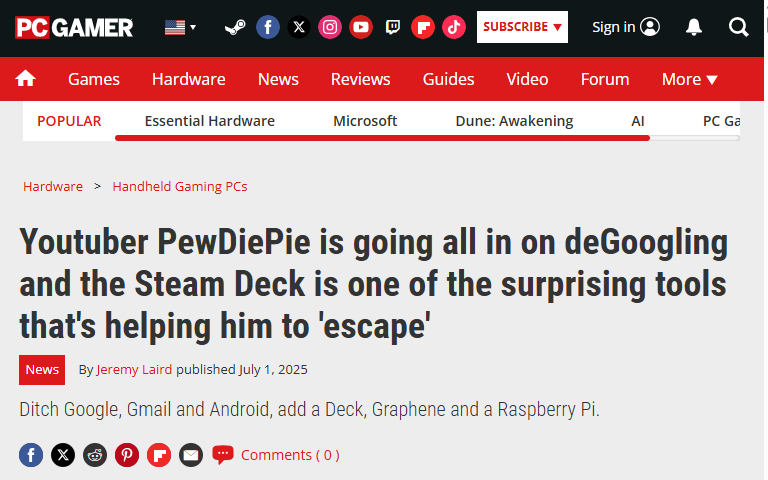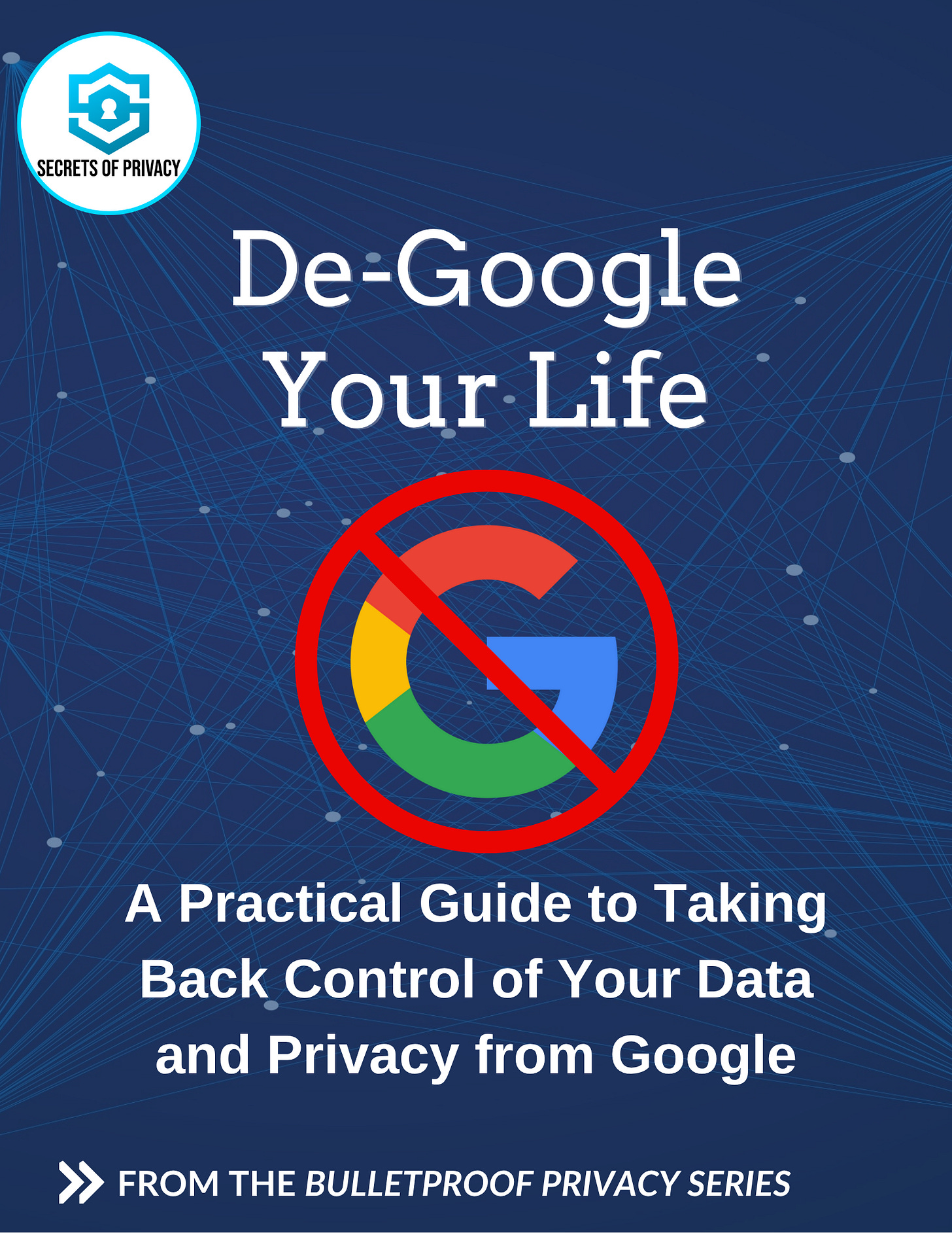Escaping the Google Trap
Start reducing your Google footprint, one service at a time
Every search, email, location ping, file upload, and calendar event gets stored across Google’s services.
But it doesn’t stop there.
These pieces aren’t siloed. Google links them together.
A calendar invite from Gmail.
An address from Maps.
A receipt in your inbox.
A document in Drive.
Individually, each one seems routine. Together, they form a detailed behavioral profile: what you do, where you go, who you interact with, and when.
Over time, Google can infer your routines, habits, interests, and emotional states, even without you sharing anything publicly.
And this is beyond just showing you ads.
These profiles can shape what shows up in your feed, how companies market to you, and how you’re scored or ranked by systems you never interact with directly.
The more services you use, the more complete that profile becomes, and the harder it is to opt out.
And Now, AI is Part Of The Equation
A Georgetown professor recently found that Google’s Gemini AI accessed and summarized his tax returns, documents pulled straight from his Gmail.
He didn’t ask it to and he certainly didn’t expect it to.
But because that file was in Google’s ecosystem, the system treated it as fair game.
When one company handles your email, search, calendar, cloud storage, documents, maps, and AI assistant, boundaries start to blur. Especially when their business model relies on monetizing your data.
Convenience comes with a cost:
you lose control over how your data is accessed, interpreted, and used.
Consider that this incident occurred in the early days of Google's AI deployment. Imagine the privacy intrusions once Google’s AI tech matures and the integrations increase.
De-Googling is Going Mainstream
When one of the world’s biggest YouTubers says he’s de-Googling his life, people notice.
In a recent video, PewDiePie shared that he’s stepping away from Google services and moving toward a more privacy-conscious setup.
That matters, and not just because of his reach, but because it signals something bigger.
Privacy isn't just a niche concern anymore. It’s going mainstream.
And if someone with millions of followers, brand deals, and digital infrastructure tied to Google can take steps to reduce his dependency, so can you.
And while it’s great to see influencers like PewDiePie popularize privacy and de-Googling, his solutions weren’t great, TBH. If you read the details, it’s overly complicated. His specific tactics were aimed at techies, hobbyists, and tinkerers, not the general population.
Fortunately we have a more practical solution to de-Google your life.
Want to Take Back Control From Google? Start Here
Regular readers know one of our core beliefs is that small privacy upgrades stack into big wins over the long run.
And as luck would have it, we just finished up a guide called De-Google Your Life to help you replace Google services with more privacy friendly options. The key part is we show you how to do this in a a manageable way. In this guide, you’ll learn:
Which private alternatives work best for each major Google service
How to switch without breaking your workflows
Where to start for the highest privacy ROI
How to avoid the most common de-Googling mistakes
There’s no shortage of free blog posts, Reddit threads, and YouTube videos on this topic, of course. But most of them are either:
Overwhelming technical dumps
A scattered list of tools with no real guidance
Written by privacy maximalists for other privacy maximalists
This guide is different. It’s written for regular people who want practical, thoughtful ways to reduce their dependence on Google without disrupting their entire life.
It’s clear, realistic, and built for busy professionals who care about privacy, but also care about usability.
You don’t have to drop everything at once. You just need to start with one step. This guide will show you how to build momentum, and keep stacking privacy wins.
🟢 UPDATE: our 50% off launch discount is now closed. But you can still grab the guide for 15% off using coupon code 8cdhfws
👉 Get your copy here
Friendly Ask
If you know someone who's trapped in Google products and services, share this post to help them get untangled.
Further Reading on Google
Here are some prior posts of ours on Google:
Looking for help with a privacy issue or privacy concern? Chances are we’ve covered it already or will soon. Follow us on X and LinkedIn for updates on this topic and other internet privacy related topics.
Disclaimer: None of the above is to be deemed legal advice of any kind. These are *opinions* written by a privacy and tech attorney with years of working for, with and against Big Tech and Big Data. And this post is for informational purposes only and is not intended for use in furtherance of any unlawful activity. This post may also contain affiliate links, which means that at no additional cost to you, we earn a commission if you click through and make a purchase.
AI scams are here and getting more sophisticated. One of the best things you can do to protect yourself is to remove your personal information from Google and the data broker sites. That starves the scammers of vital information, making you a much harder target. You can DIY, or pay a reasonable fee to DeleteMe to do it for you. Sign up today and get 20% off using our affiliate link here. We’ve used DeleteMe for almost five years and love it for the peace of mind. It’s also a huge time saver and an instant privacy win.
Privacy freedom is more affordable than you think. We tackle the top Big Tech digital services and price out privacy friendly competitors here. The results may surprise you.
Check out our specialized privacy and security guides in our digital shop. Below is a sample of what’s available. People are really enjoying the “How Exposed Are You Online” guide (only $7). Browse here.
If you’re reading this but haven’t yet signed up, join for free (2.5K+ subscribers strong) and get our newsletter delivered to your inbox by subscribing here 👇











Few people understand how precarious their data, files, pictures, digital-life-in-general is. Reliance on big tech, or digital-only for important documents and memories, is building on shifting sand. This is a valuable wake-up call!
Some, but a work in progress...